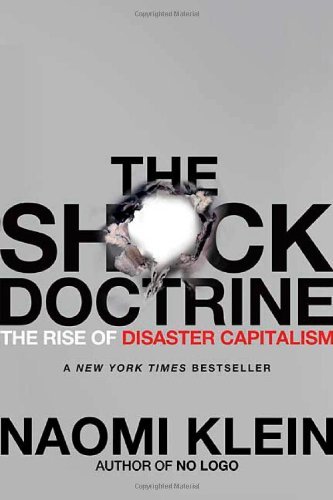T.Elise@bookwyrm.social reviewed The Shock Doctrine by Naomi Klein
None
5 stars
Truly one of the best books I’ve read.

Hardcover, 558 pages
English language
Published Sept. 18, 2007 by Metropolitan Books.
An introduction to "disaster capitalism" argues that the global free market has exploited crises, violence, and shock in the past three decades to promote radical privatization that benefits large corporations and powerful interest groups.
Truly one of the best books I’ve read.
But in a good way, if one can be upset in a good way about being made aware of the misery that the US & the IMF have inflicted across the globe.
Thanks to this book, I’ll now celebrate the day Milton Friedman died as a holiday (Nov 16).